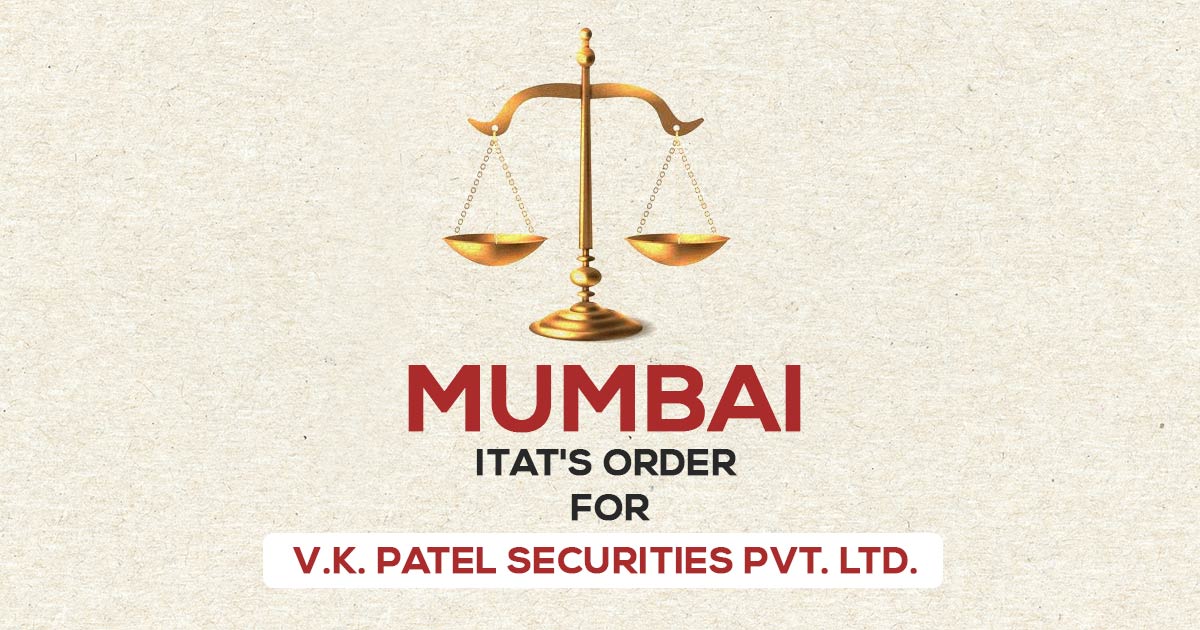
The Income Tax Appellate Tribunal (ITAT), the Mumbai bench ruled that the number of aggregate business receipts was below the threshold limit of Rs. 1 crore specified under Section 44AB of the Income Tax Act, 1961 for account audit. Therefore, the panel repealed the defect notice in question and the return filed by the assessee should be regarded as a valid return.
Return of income filed by the assessee, V.K. Patel Securities Pvt. Ltd. who is a broker of equity, for the year under contemplation revealing gross earning of Rs. 3,82,74,330. A defect notice was released by the Central Processing Cell (CPC) under Section 139(9) of the Income Tax Act.
The return of income filed by the assessee was not processed by the CPC. The assessee was dissatisfied with the CPC-issued defect notice and filed “e-Nivaran Grievance”, opposing to which, they invalidated the return filed by the assessee and issued a response communication.
The assessee filed before the Commissioner of Income Tax (Appeals) and questioned the defect notice. The appeal was rejected by the first appellate authority stating the absence of a provision to file an appeal against the defect notice under Section 139(9) of the Income Tax Act.
The Authorised Representative (AR) of the assessee, Hiten Vasant, said that the assessee is not subject to getting its accounts audited. The AR contended mentioning the Profit and Loss account, that the aggregate business receipts of the assessee were below the threshold limit of Rs. 1 crore which was Rs. 92,95,722/-. Further, the AR argued that the return of income filed by the assessee does not come under defective return.
Vranda U. Matkari was the representative for the Department.
The two-member bench comprising, B.R. Baskaran, Accountant Member, and Rahul Chaudhary, Judicial Member taking the reference of a decision in the case of Deere Company vs. DCIT (2022), and ruled that the defect notice can be appealable which was issued under Section 139(9) of the Income Tax Act.
Correspondingly, the panel overruled the directive given by the CIT(A) and ruled that in this current case, the assessee is applicable to file an appeal. Moreover, the tribunal noted that total business receipts were of Rs. 92,95,722/-, which is below the threshold limit of Rs. 1 crore specified under Section 44AB of the Income Tax Act to get the accounts audited.
Thus, in the assessee’s submission, there was merit that it is not necessary to get its accounts audited under Section 44AB of the Income Tax Act.
Accordingly, the panel ruled that the CPC-issued defect notice under Section 139(9) of the Income Tax Act is not as per the regulations therefore, rejected the said defect notice, and instructed the AO/CPC to consider the return filed by the assessee as a valid return and do the further process adhering to the regulations.









